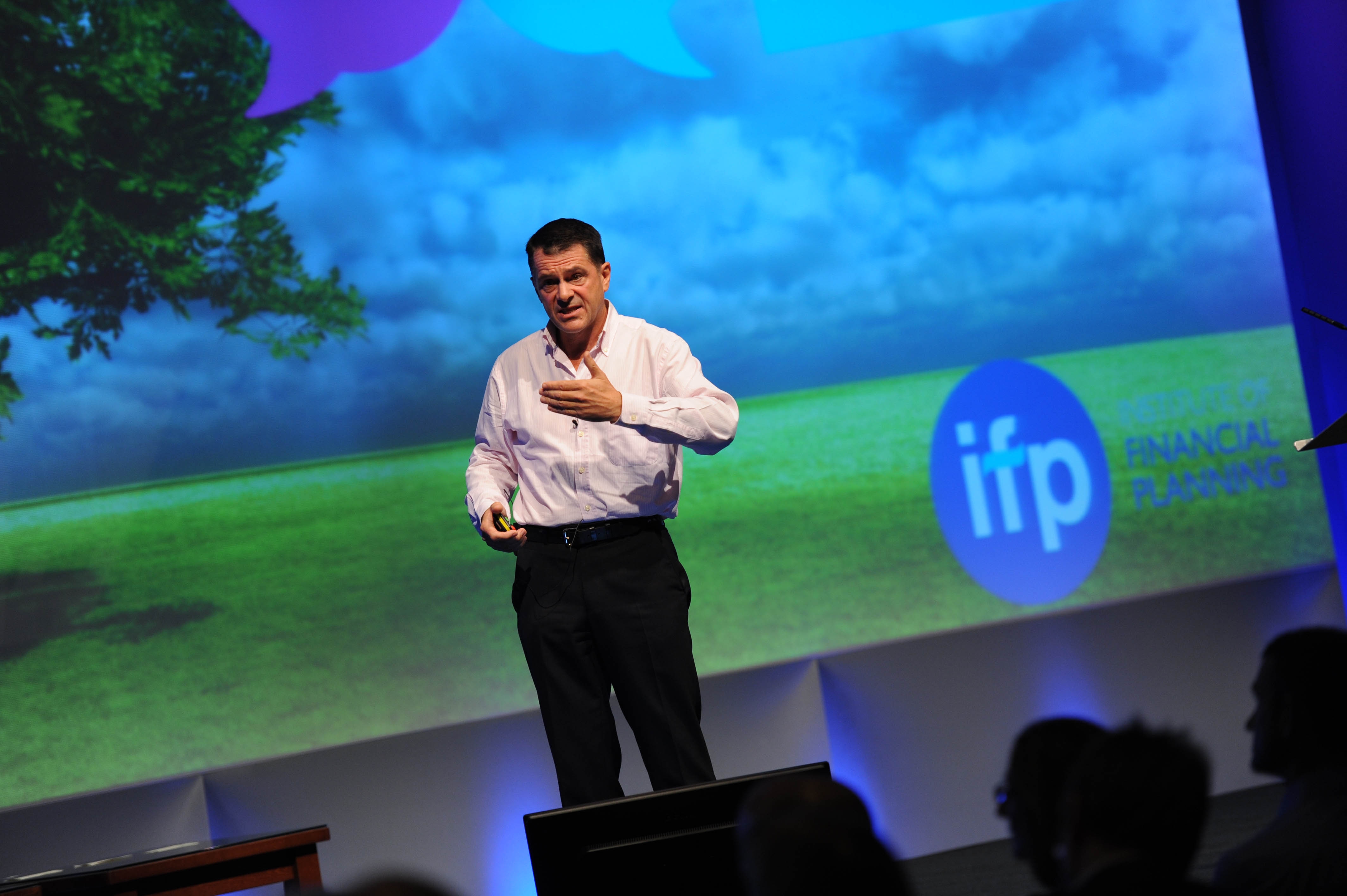Mike Kellard, chief executive of AXA Wealth, told delegates in a keynote address at the IFP Annual Conference that spotting trends was crucial to their future success.
Citing examples such as Levi Roots and Innocent products, he said the financial services sectors and Financial Planners must be aware of changing trends among customers and respond. One example was the need for mobile information, he said in a speech titled: "The Future Ain't What It Used To Be."
He said: "For those who can spot trends, not just in business but in areas of society, technology, politics, environment and culture, the outlook is bright indeed. The art is in joining the dots.
"We all knew the RDR was coming, but even before that in the AXA Wealth business we recognised the way that advisers wanted to be remunerated was changing and as a result we launched a version of adviser charging over 10 years ago. In many ways this early adoption, while risky at the time, has put us ahead of the RDR curve today and has provided us with a leader advantage that we are just beginning to realise.
{desktop}{/desktop}{mobile}{/mobile}
"It was not by looking to the past that led us to sell £50bn of assets of the traditional life company, AXA Life, and create a new model, new thinking wealth business. This has helped us commit to meeting the future needs of advisers – whether that's through access to a wide range of clean share classes, a leading wrap platform, or providing them with one of the few more traditional product ranges on the market.
"So, what of the future world of wealth management? Changes in society mean that today's retirees look nothing like the images on many product providers' brochureware of a retired couple skipping over the sand dunes. Thanks to a revolution in healthcare, low fertility rates, and, for some, a little cosmetic help, today's retirees grew up in a post-war age of rising prosperity, that fuelled the growth of rock 'n' roll, space travel, advances in technology and low cost travel.
This group, which has very different aspirations than the traditional pensioner, needs to be supported with relevant products and service standards through appropriate channels – their channels, communicating on their terms, not ours.
"Even geographical changes will impact future investing. So called 'emerging markets' like Asia, which has seen its GDP increase – and could potentially grow to 52% by 2050 - could well retain the dominant economic position it held before the industrial revolution, some 200 years ago."
Mr Kellard said that he saw Financial Planners continuing to do well but that there was "a big advice" gap opening up in the mass market. He says he believes that Financial Planning would continue to be a premium service delivered face to face but that the direct-to-consumer market could move decisively towards digital distribution.
"The ease of online transactions has changed the high street, the music industry and the way we consume and share information. What is important is what we do with information, how we share it and how we access it. Future winners will be those that give power to the consumer, making it as easy as possible for them to engage with what you have to offer them."
AXA Wealth and Architas are lead sponsors of the conference.

